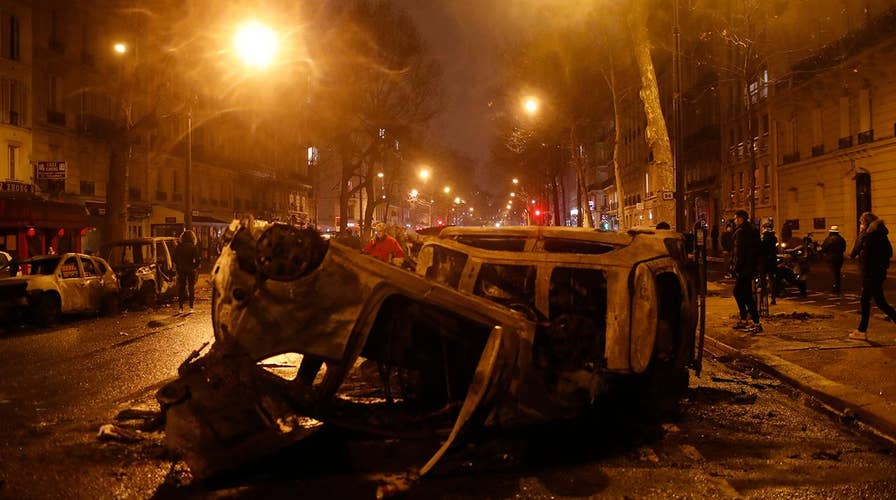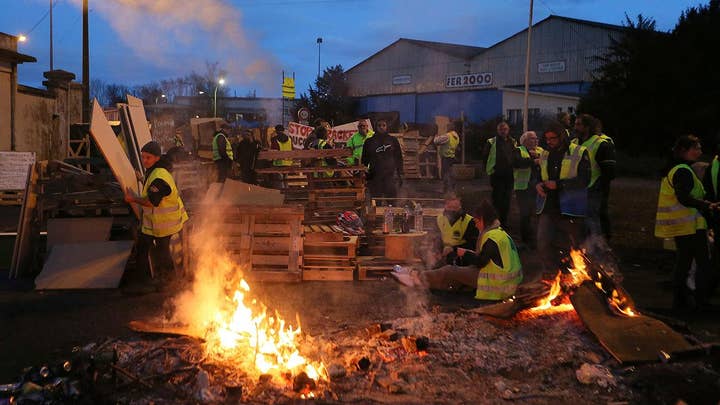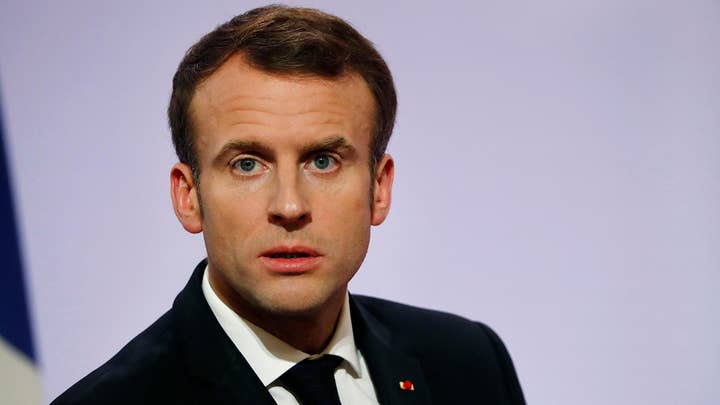Paris rioters protest against Macron's climate agenda
Rioter's revolt against French President Emanuel Macron's far left climate agenda; CRTV host Graham Allen reacts to the protests.
As French President Emmanuel Macron faces the biggest crisis of his presidency -- in the form of massive, and frequently violent, widespread protests -- his government is frantically backtracking on a controversial gas tax detested by demonstrators and considering shifting the tax burden to the rich.
Paris and other parts of the country have been hit by the protests from the “yellow vest” demonstrators, who have turned out in the thousands to protest the fuel tax hike in recent weeks -- with protests frequently escalating into violent riots and clashes with police. Macron had said the increases were necessary to reduce France’s reliance on fossil fuels and to tackle climate change.
But with protesters choosing pocket change over climate change and giving a resounding “non” to the move, and with Macron’s popularity plunging into the low 20s, the French government relented and announced a suspension of the tax for six months. Then, on Wednesday, France announced it was scrapping the tax altogether.
“The President and the Prime Minister [Edouard Philippe] have expressed the wish that the increase in the carbon tax provided for in Bill 2019 be removed,” the Elysee said in a statement, according to Le Monde.
However, the statement from the palace indicated Macron’s eco-agenda as a whole is far from over: “The citizen and parliamentary debate of the coming weeks and months will have to find solutions and funding that will meet the challenges of the ecological transition, solutions that must preserve the purchasing power of our fellow citizens.”
The backpedaling by Macron’s government is a significant blow to his presidency, which has been dogged by accusations he is out of touch and is a president for the rich.
DESPITE HEAT AT HOME, TRUMP APPROVAL RATINGS TOWER ABOVE EMBATTLED EUROPEAN LEADERS
But the move could also serve to stop the protests, which have brought major cities to a standstill just weeks before Christmas and sent images of riots and burning cars to screens worldwide. The demonstrators have also shown an ability to adapt, however, as they have moved from a specific anti-tax protest into a wider movement to show discontent with the government.
Also Wednesday, the government indicated it was considering bowing to another demand of the yellow vest protesters -- re-instating the wealth tax Macron controversially scrapped in 2017 as part of a push to reignite the then-sluggish French economy.
The Wall Street Journal reported that government spokesman Benjamin Griveaux said on French radio that the tax, on households with assets at more than $1.5 million, could be nixed in 2019.
“If a measure we’ve taken doesn’t work, we’re not stupid, you see, we’re going to change it,” he said.
Protests scheduled for Saturday had not been called off and Le Figaro reported 65,000 police officers and law enforcement personnel -- and other “exceptional” resources -- had been mobilized ahead of any potential disruption.
Marine Le Pen, Macron's right-wing 2017 presidential election rival, urged Macron on Wednesday to meet with the protesters before Saturday.
"Do not hide at the Elysee, do not ask others to do what the French expect of you, listen to them, hear them before Saturday," she told reporters.



